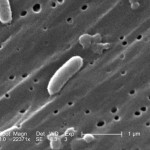Traveling nursing programs have become a pivotal aspect of nursing education, offering students the opportunity to gain hands-on experience while making a tangible difference in communities around the world. One such remarkable initiative is the deployment of nursing students to the Dominican Republic, where they provide essential health care services to underserved populations. This experience not only broadens their clinical skills but also enhances their cultural competence and empathy, preparing them for the diverse challenges of the nursing profession.
The Mission and Objectives
The primary mission of this traveling nursing program is to deliver critical health care services to communities in the Dominican Republic that lack adequate medical facilities and resources. The objectives are twofold: to offer high-quality care to those in need and to provide nursing students with an immersive learning experience that extends beyond the conventional classroom setting.
The Journey Begins
Nursing students, guided by experienced faculty members, embark on a journey that is both educational and humanitarian. Before departure, they undergo rigorous preparation, which includes cultural training, language lessons, and an overview of the prevalent health issues in the region. This ensures that they are well-equipped to handle the medical and cultural challenges they will encounter.
On-the-Ground Impact
Upon arrival, the nursing students are immediately immersed in a busy schedule of health care delivery. They set up clinics in rural and urban areas, often in makeshift settings, to provide a wide range of services including:
Basic Medical Care: Treating common illnesses, conducting physical examinations, and providing vaccinations.
Health Education: Educating community members about hygiene, nutrition, disease prevention, and management.
Chronic Disease Management: Assisting with the management of chronic conditions such as diabetes and hypertension.
Maternal and Child Health: Offering prenatal and postnatal care, as well as pediatric services.
These services are crucial in a region where access to health care is limited and often inconsistent. The nursing students work tirelessly to ensure that as many people as possible receive the care they need.
Learning Through Service
For the nursing students, this program is a profound learning experience. They are exposed to a variety of health conditions and medical situations that they might not encounter in their home country. This exposure helps them to develop a deeper understanding of global health issues and the social determinants of health.
Additionally, the experience teaches them to be resourceful and adaptable. In the Dominican Republic, they often have to work with limited supplies and under challenging conditions. This fosters creativity and critical thinking, essential skills for any nurse.
Cultural Exchange and Personal Growth
Beyond the clinical experience, the program facilitates a rich cultural exchange. Nursing students live and work alongside local health care providers and community members, gaining insight into the Dominican culture and way of life. This interaction helps to build mutual respect and understanding, and many students form lasting connections with the people they meet.
On a personal level, students often describe the experience as transformative. They return home with a renewed sense of purpose and a commitment to making a difference in the world. The challenges they face and the people they help leave an indelible mark on their personal and professional lives.
The Broader Impact
The impact of this program extends beyond the immediate health care services provided. It also contributes to the long-term health outcomes of the communities served. By offering health education and building local capacity, the program helps to empower community members to take charge of their own health.
Moreover, the experience gained by the nursing students helps to shape the future of nursing. These students become advocates for global health and often pursue careers in international health, working for agencies like All Medical, bringing their skills and passion to underserved communities around the world.
The traveling nursing program to the Dominican Republic exemplifies the powerful intersection of education, service, and global health. By providing essential health care services and engaging in meaningful cultural exchange, nursing students not only enhance their own skills and knowledge but also make a significant impact on the communities they serve. Programs like these are invaluable in preparing the next generation of nurses to meet the diverse and complex challenges of the health care field.
 million. In addition to an initial lack of safe drinking water, hunger and poor sanitation, anecdotal accounts of diphtheria and tetanus outbreaks circulated. The headquarters housing the ministry of public health was itself devastated when it collapsed, killing most of the minister’s staff who had remained inside.
million. In addition to an initial lack of safe drinking water, hunger and poor sanitation, anecdotal accounts of diphtheria and tetanus outbreaks circulated. The headquarters housing the ministry of public health was itself devastated when it collapsed, killing most of the minister’s staff who had remained inside.






